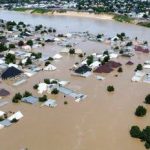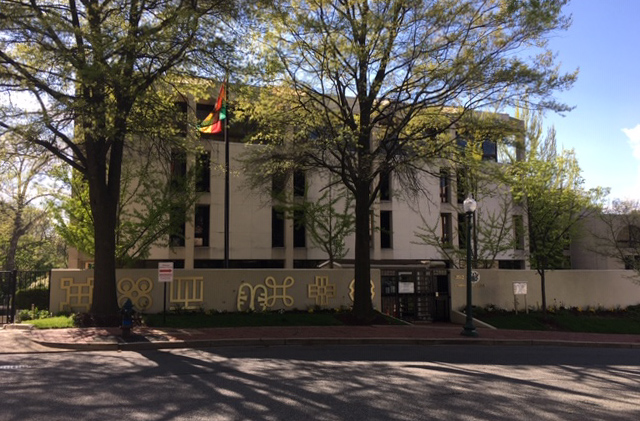
Trump Imposes 14% Tariff on Nigerian Goods, Hits Other African Nations with Heavy Tariffs

The United States has imposed a 14 per cent tariff on Nigerian exports, marking a major shift in trade relations. President Donald Trump announced the policy at the White House on Wednesday and said it aims to protect American industries and counter “unfair trade practices.”
Nigeria, which exported $6.29 billion worth of goods to the U.S. in 2023 while importing $3 billion, has been hit with the new tariff. The Trump administration argues that Nigeria’s 27 per cent tariff on U.S. goods has long been unfair to American businesses.
The tariff on Nigerian exports is part of a broader trade policy that introduces a baseline 10 per cent duty on all imports into the U.S. The new policy targets over 50 countries, with higher tariffs imposed on nations that the Trump administration claims have trade imbalances with the U.S. Countries with significant surpluses face some of the highest tariffs, including China (34 per cent), the European Union (20 per cent), and Vietnam (28 per cent).
In Africa, several nations have been affected, with some facing even higher rates than Nigeria. Lesotho, a small southern African country, will be hit with a 50 per cent tariff. This marks the highest on the continent. Botswana faces 37 per cent, while South Africa will see a 30 per cent duty. Côte d’Ivoire and Namibia will each pay 21 per cent, while Tunisia is set for 28 per cent. Kenya, Ghana, Morocco, and Egypt are affected by the 10 per cent baseline tariff.
U.S. officials said the decision was driven by concerns that existing trade policies have disadvantaged American businesses. Markets reacted sharply to the announcement, with fears of global trade tensions rising. Analysts warn that the tariffs could disrupt supply chains and increase business costs. Some countries may retaliate, which would lead to further economic imbalances.
The White House confirmed that the tariffs would take effect immediately, introducing higher duties in phases. Nigeria is the second-largest U.S. export destination in Sub-Saharan Africa. However, the government has yet to respond to the recent trade policies.
Côte d’Ivoire’s Economic Turnaround And Its Impact On West Africa
About The Author
Related Articles
Cotê D’Ivoire: Thousands Rally in Abidjan as Opposition Demands Electoral Reforms Ahead of October Election
Thousands of opposition supporters gathered in Abidjan on Saturday, May 31, to...
ByJoy ChukwuJune 1, 2025Togo Stops Issuing Mining Permits to Reform Outdated Mining Code
Togo has suspended the issuance of new mining permits for prospecting and...
ByJoy ChukwuJune 1, 2025ICYMI: Ghana Shuts Down Washington Embassy Over Visa Fraud Scandal
Ghana has temporarily closed its embassy in Washington, D.C., following the uncovering...
ByJoy ChukwuMay 31, 2025Confederation of Sahel States Moves to Establish Joint Judicial Body
The Confederation of Sahel States (CSS), comprising Mali, Niger, and Burkina Faso,...
ByJoy ChukwuMay 31, 2025












Leave a comment